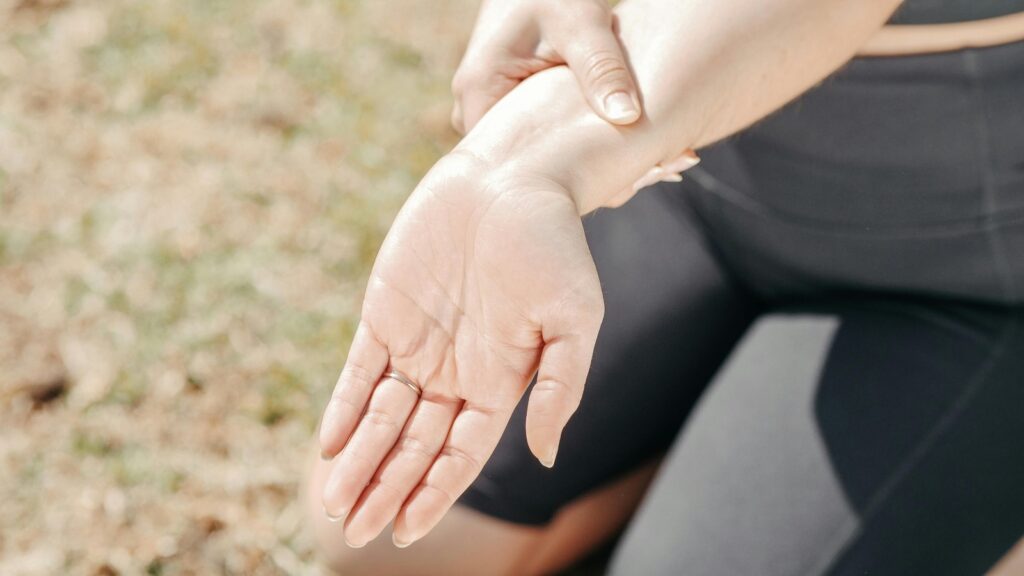Is arthritis more common among women? Yes, says Dr Yatinder Kharbanda, senior consultant orthopedic surgeon, Indraprastha Apollo Hospital, Delhi. He says, “Arthritis is more common among women due to biological, hormonal, and lifestyle factors. Biologically, women’s joints are more flexible, which makes them prone to wear and tear, increasing the risk of osteoarthritis. Hormonal changes, particularly the drop in estrogen during menopause, also play a major role. Estrogen has a protective effect on joints, and its decline can lead to inflammation and joint pain.” Also read: Is your chiropractor making your arthritis worse? Hidden risks you need to know

Behavioral patterns like the various physical activities women engage in play a major role. Weight fluctuations during pregnancy can also put stress on the joints. The household and caregiving tasks are usually borne by women, which often encompass repetitive chores. These strain the joints over time. It’s important to understand that arthritis isn’t just a part of aging. Staying active, maintaining a healthy weight, and consulting a doctor at the initial signs of joint pain are vital.
Early warning signs of arthritis in women
Women may experience early signs of arthritis such as joint pain, stiffness, and swelling, often worse in the morning or after periods of inactivity. Other symptoms include tenderness around joints, reduced range of motion, and fatigue. Dr. Shilpi Sachdev, Consultant Obstetrics & Gynecology, Apollo Cradle & Children’s Hospital – Moti Nagar, New Delhi says, “Women of childbearing age are particularly at risk for autoimmune arthritis types, like rheumatoid arthritis, which may present with these early symptoms. Over time, small joints such as those in the hands, wrists, and feet are often affected first.” Early detection is crucial, so consult a doctor if these signs persist, especially during or after pregnancy.
Effect of weather and obesity on arthritic patients
Weather changes, particularly cold and damp conditions, may aggravate arthritis symptoms by increasing joint stiffness and pain. Keep yourself warm, exercise, consume Omega 3 fatty acids, say experts. “Obesity in anyone and especially for pregnant women, adds pressure to weight-bearing joints like the hips, knees, and lower back, escalating arthritis pain and perhaps worsening inflammation. Managing a healthy weight and staying active can help reduce the strain on joints and alleviate discomfort, allowing better mobility despite arthritis,” says Dr. Sachdev.
Lifestyle changes you can make
These lifestyle adjustments can go a long way in reducing pain and improving overall quality of life, advises Dr. Kharbanda:
- Staying physically active is key—regular, low-impact exercises like walking, swimming, or yoga can help keep joints flexible and reduce stiffness.
- Maintaining a healthy weight is crucial, as excess weight puts extra stress on the joints, especially in the knees, hips, and lower back.
- Simple changes in posture and body mechanics, such as using ergonomic chairs and taking frequent breaks when sitting for long periods, can also ease discomfort.
- Applying heat or cold to painful areas, wearing supportive footwear, and using assistive devices like canes or joint braces can provide additional relief.
Advantages of Robotic surgeries
Robotic arms are revolutionizing joint replacement surgeries. With tailored joint alignment and personalized treatment plans, robotic technology improves the accuracy of implants, resulting in better joint function. According to Dr. Sachdev, “Although pregnancy may delay surgery, women can look forward to these cutting-edge options for managing long-term arthritis post-delivery, offering significant improvements in mobility and pain relief,”
Latest, quicker advancements like robotic arm-assisted technology have made joint replacement procedure for severe arthritis patients more precise and accurate. “This results in less post-operative pain, faster recovery discharge. Arthritis patients across the world lead a better quality of life with restored joint mobility,” signs off Dr. Kharbanda.
Disclaimer: This article is for informational purposes only and not a substitute for professional medical advice. Always seek the advice of your doctor with any questions about a medical condition.
This article was originally published by a www.hindustantimes.com . Read the Original article here. .


